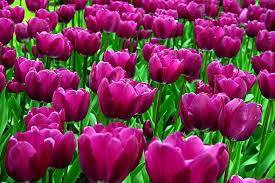How to Use Space to Attract Wealth and Good Luck in Palaces

In the realm of palace design, particularly in ancient China, space was not just a physical entity; it was imbued with profound cultural, spiritual, and cosmic significance. The layout and organization of the royal palace played a pivotal role in fostering prosperity, good fortune, and longevity for the emperor and his dynasty. By adhering to the principles of Feng Shui, the traditional Chinese practice of arranging spaces to harmonize with the natural forces of the universe, royal architects and designers aimed to create an environment conducive to attracting wealth, success, and good luck.
Feng Shui, which translates to “wind-water,” is based on the idea that the positioning of physical elements can influence the flow of Qi (energy) within a space, and consequently, the fortune and fate of its inhabitants. In the context of a palace, the correct use of space can significantly impact the well-being of the emperor, his family, and the stability of the entire empire. This article explores how the strategic use of space in a palace can be employed to attract wealth and good luck, ensuring the continued prosperity of the royal family.
1. Understanding the Role of Qi in Palace Design
Before delving into how space is utilized to attract prosperity, it is essential to understand the central concept of Qi in Feng Shui. Qi is the life force that flows through everything in the universe, influencing not only the health and well-being of individuals but also the fortune of entire families, communities, and nations. In the context of a palace, Qi must flow freely and harmoniously to create a vibrant, prosperous environment. If the Qi is blocked or stagnant, it can lead to misfortune, illness, or even the downfall of a ruling dynasty.
The spatial layout of a palace must therefore be designed to ensure that Qi flows smoothly through all rooms, courtyards, and gardens. Every space within the palace, from the emperor’s throne room to the outer gardens, must be arranged in a way that fosters a positive flow of energy. By strategically organizing space, the palace designers were able to harness this flow of energy to attract wealth, good fortune, and success to the imperial family.
2. The Importance of the Palace’s Entrance and Orientation
The entrance of a palace is one of the most crucial elements in Feng Shui, as it is where Qi first enters the space. In traditional Feng Shui, it is believed that the front door of the palace is the “mouth” of the building, where energy enters and exits. A well-positioned entrance allows Qi to flow smoothly into the building, bringing prosperity and good luck to the royal family.
2.1 The Main Gate
In many palaces, the main gate was designed with Feng Shui in mind to ensure that the entrance would attract positive energy. The gate’s alignment was chosen based on the cardinal directions, with the ideal orientation allowing for the smooth flow of Qi. A gate that is directly aligned with the flow of energy, without any obstructions in the way, would invite wealth and fortune into the palace.
The main gate is often flanked by symbolic structures or statues designed to protect the space and attract prosperity. These could include dragons, lions, or other auspicious symbols, each representing different forms of wealth, power, and protection. In addition, the gate’s size and design are carefully considered to maintain a balance of Yin and Yang, ensuring that both passive and active energies are represented in the space.
2.2 Orientation and Positioning
The orientation of the entire palace is another vital aspect of attracting wealth and good luck. In Feng Shui, the placement of the palace in relation to the natural elements—mountains, rivers, and the surrounding landscape—plays a critical role in influencing the flow of Qi. The ideal positioning of a palace should follow the principles of harmony with nature, where natural forces such as wind and water are carefully channeled to benefit the inhabitants.
For example, palaces built near a river or body of water were thought to benefit from the “wealth-bringing” properties of water. Water is believed to symbolize abundance, prosperity, and fluidity. When placed in the right position, water can attract good fortune, making it an essential element in the design of a royal palace.
3. Courtyards and Gardens as Wealth Magnets
Courtyards and gardens in the palace grounds play a significant role in Feng Shui. They are not only aesthetic features but also functional spaces that influence the flow of energy within the palace. A well-maintained courtyard with carefully placed plants, fountains, and other features can help balance the flow of Qi, creating a harmonious environment that supports the prosperity of the royal family.
3.1 Central Courtyards for Vital Energy
In many Chinese palaces, the central courtyard is considered the heart of the palace, where Qi is concentrated before being distributed to other parts of the building. The positioning of the central courtyard is crucial in determining the overall prosperity of the palace. This space is often open and unencumbered, allowing energy to circulate freely. Trees and plants may be placed strategically to attract positive energy, while water features such as fountains or ponds help to further enhance the flow of Qi.
The central courtyard is often the space where significant rituals or ceremonies take place, and it serves as a symbolic center of power and wealth. Its placement and design ensure that the emperor’s authority and fortune are connected to the flow of Qi, contributing to the dynasty’s stability and success.
3.2 Garden Elements for Harmony and Wealth
In addition to the central courtyard, gardens surrounding the palace are carefully designed to attract wealth and good fortune. A well-designed garden with flowing water, lush vegetation, and carefully arranged rocks can help attract positive energy while blocking negative forces. Specific plants and flowers are chosen for their symbolic meanings. For example, bamboo is often used to represent resilience and longevity, while peonies symbolize wealth and prosperity.
The placement of these plants within the garden is just as important as the types of plants chosen. Feng Shui principles guide the placement of plants to create balance and encourage a steady flow of Qi. The harmonious design of the palace gardens helps create a positive environment that attracts wealth, prosperity, and good fortune.
4. Interior Design and Layout for Prosperity
Once inside the palace, the arrangement of the interior spaces plays a key role in attracting wealth and good luck. The positioning of furniture, decoration, and even the materials used in construction can all influence the flow of Qi within the space.
4.1 The Throne Room: The Center of Power
The throne room, or the emperor’s private chambers, is one of the most important spaces in the palace. This room must be designed to attract the maximum amount of Qi, ensuring that the emperor’s energy is aligned with the flow of prosperity and power. The throne should be placed in a commanding position, facing the entrance of the room, symbolizing the emperor’s control over the affairs of the empire.
The colors, materials, and decorative elements in the throne room are also carefully chosen to enhance prosperity. Gold, jade, and other precious materials are used to convey wealth and power, while symbols of strength and longevity, such as dragons and tortoises, are incorporated into the room’s design.
4.2 Bedroom and Rest Spaces for Vitality and Longevity
The placement of the emperor’s bedroom and other resting spaces is equally important for attracting wealth and good fortune. These spaces should be located in areas of the palace that are aligned with the flow of positive energy, ensuring that the emperor and his family can rest peacefully and rejuvenate their vitality. A restful and peaceful environment is essential for maintaining the physical and spiritual health of the emperor, which is directly linked to the prosperity of the dynasty.
The bed should be placed in a way that promotes restful sleep and good health, avoiding positions where the head faces a door or is under a beam. These practices are meant to reduce stress and allow the emperor to enjoy a long, prosperous life.
5. Symbolic Elements for Wealth and Good Luck
Throughout the palace, symbolic elements are used to attract wealth and good fortune. These symbols may appear in the form of carvings, paintings, sculptures, or decorative objects. Each symbol is carefully chosen for its auspicious meaning and placed in specific locations to maximize its effect on the flow of Qi.
5.1 Dragons and Phoenixes: Symbols of Prosperity
The dragon, a symbol of power, authority, and wealth, is a common feature in the design of royal palaces. The phoenix, representing beauty, harmony, and longevity, complements the dragon, creating a balanced and prosperous environment. These symbols are often placed in the emperor’s quarters or in public spaces where they are believed to attract good fortune and abundance.
5.2 Other Symbols of Wealth
Other symbols, such as the tortoise (representing stability and longevity) and the crane (symbolizing immortality and good fortune), are frequently used in palace design to enhance the flow of Qi and invite prosperity. The careful integration of these symbols into the architecture and decoration of the palace ensures that the emperor and his family will enjoy long-lasting wealth and good luck.
6. Conclusion: Using Space to Attract Wealth and Luck in Palaces
In conclusion, the use of space in palace design plays a crucial role in attracting wealth and good fortune. Through the strategic arrangement of rooms, courtyards, gardens, and symbolic elements, the design of the palace ensures that the flow of Qi is harmonious and conducive to prosperity. By following the principles of Feng Shui, royal architects were able to create environments that not only enhanced the emperor’s well-being but also fostered the wealth, power, and longevity of the entire dynasty. The careful planning and use of space in the palace were vital in ensuring that the royal family remained in good fortune for generations to come.

